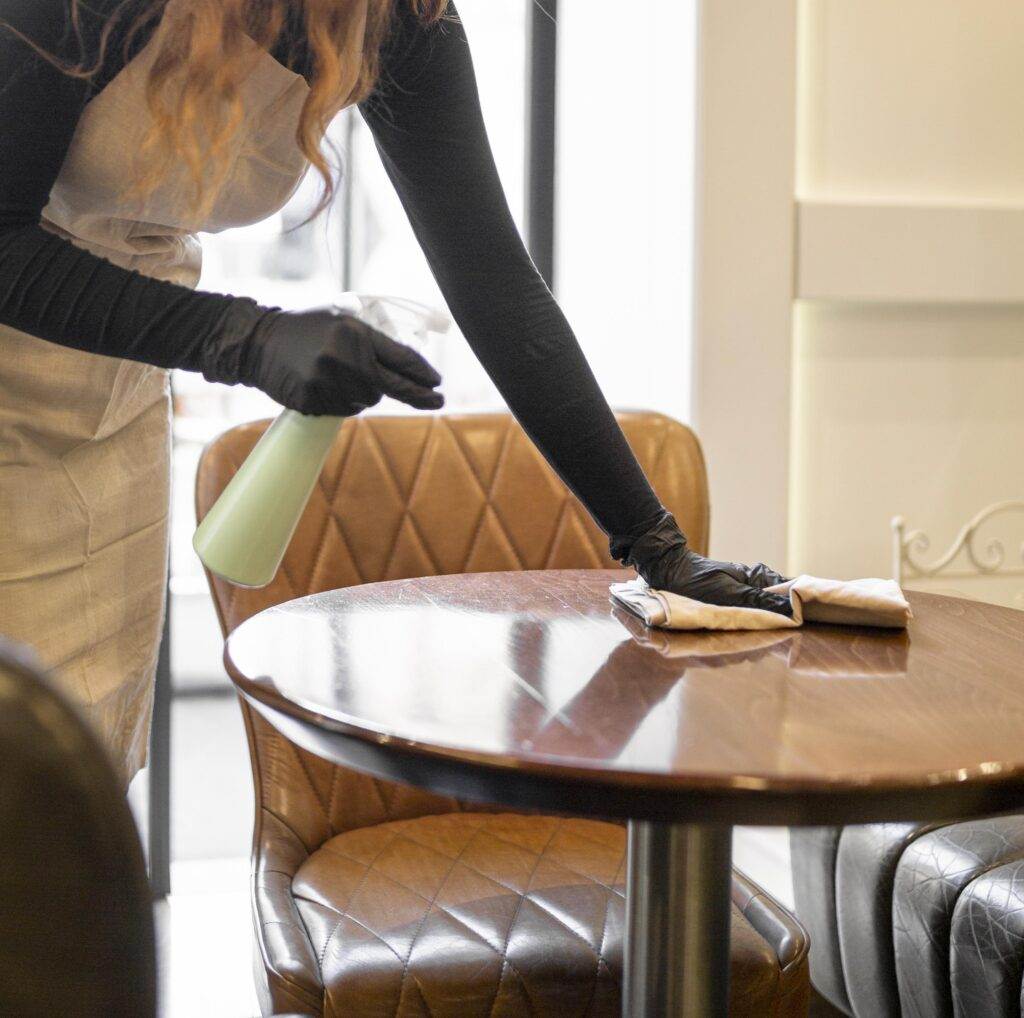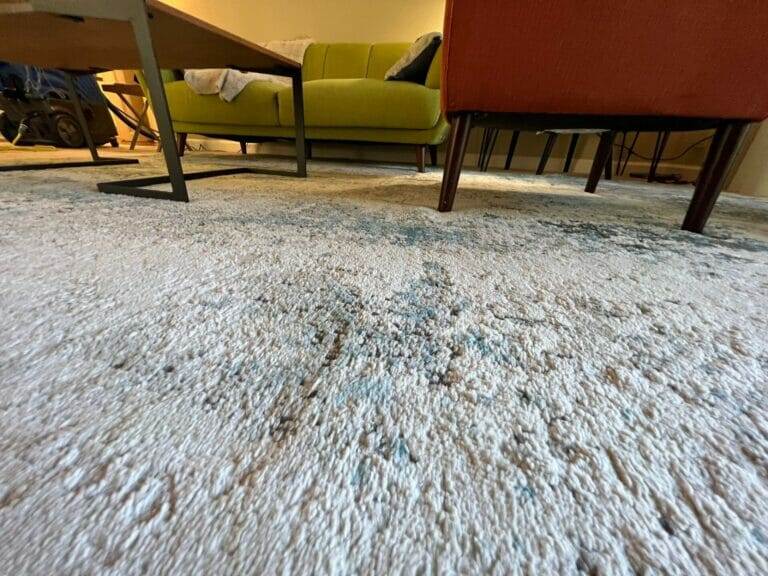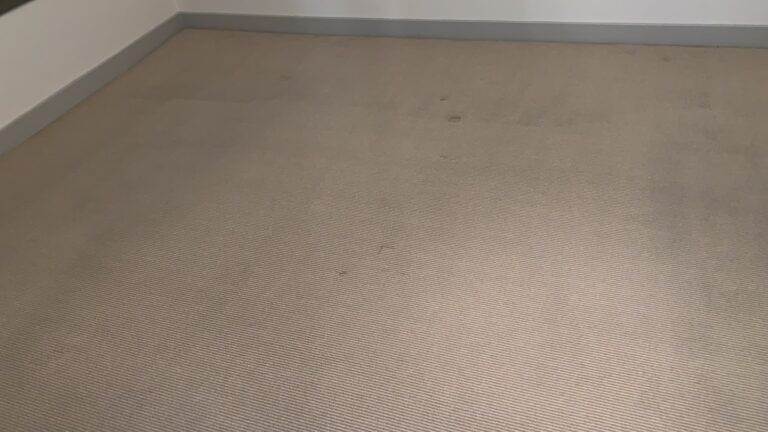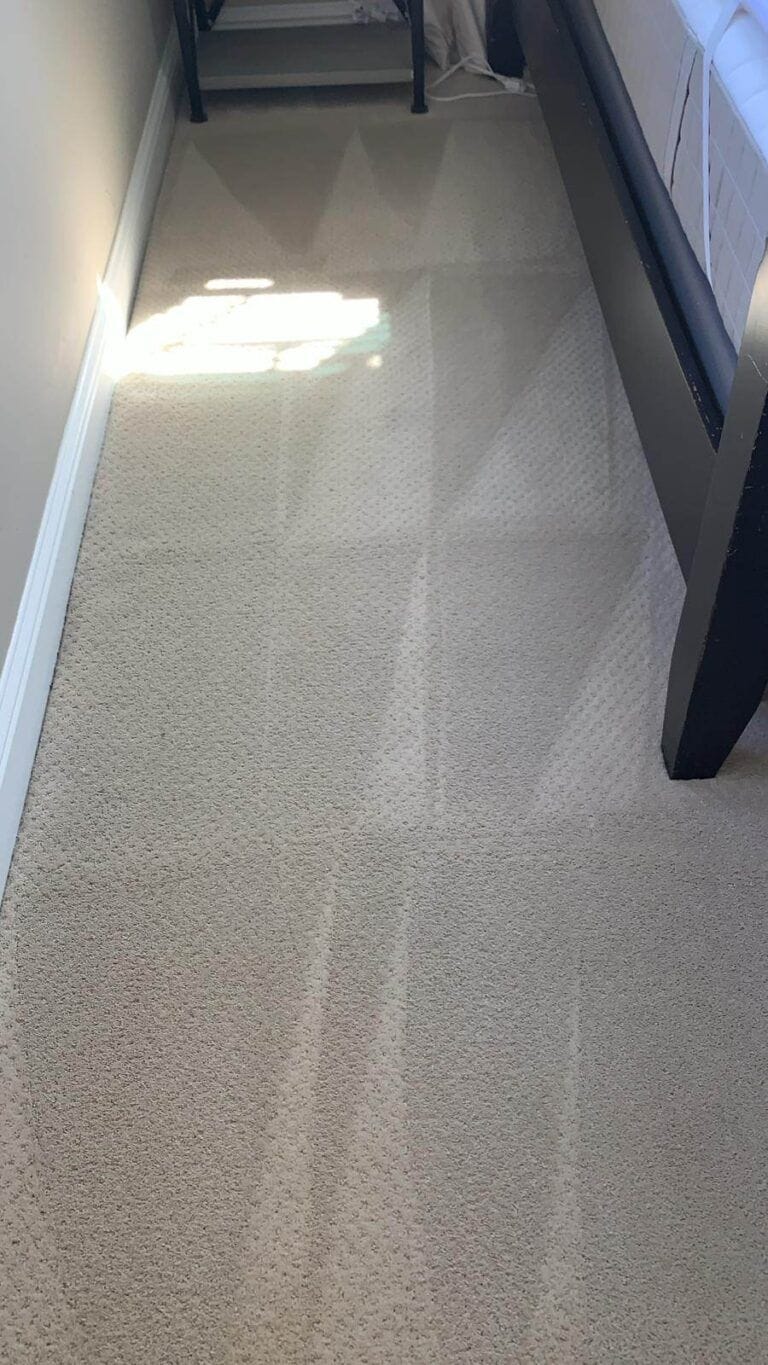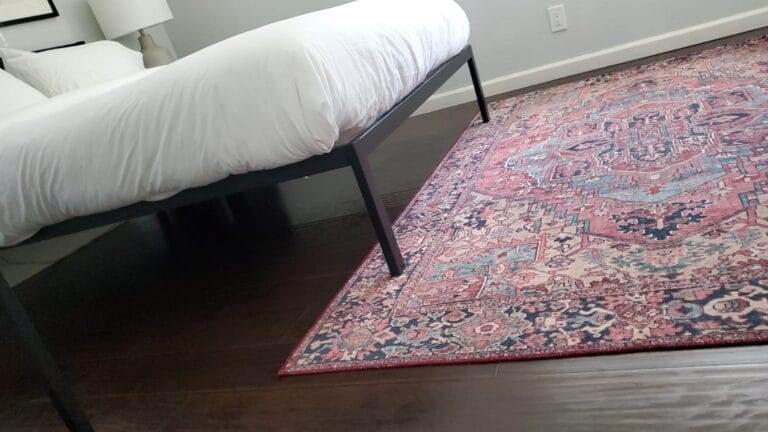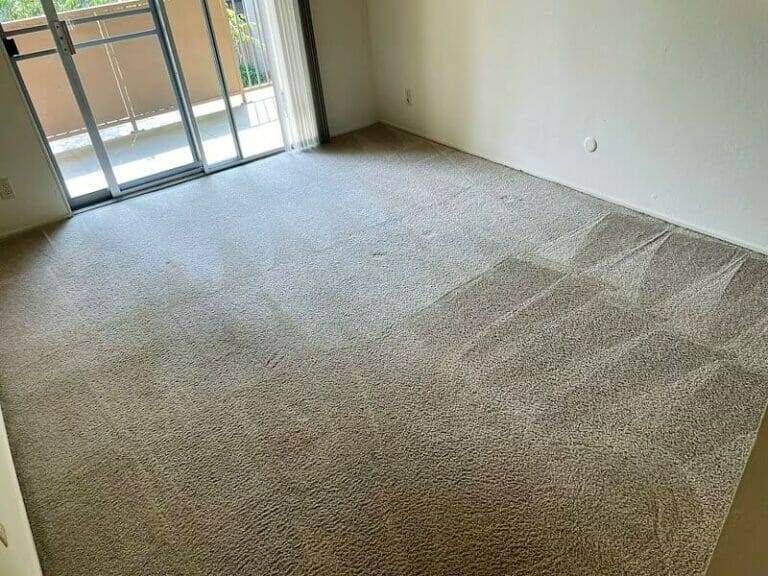Maintaining a clean living space is essential for our overall health and wellbeing. A clean home not only looks aesthetically pleasing, but it also promotes a healthier environment. One area of the home that often gets overlooked when it comes to cleaning is the carpet. Carpets can harbor dirt, dust, allergens, and even bacteria, which can have a negative impact on our health. That’s why a deep carpet clean is so important.
Carpets act as a filter, trapping dirt, dust, and allergens that are brought into the home. Over time, these particles can accumulate and become embedded in the carpet fibers. This can lead to poor indoor air quality, which can trigger allergies and respiratory issues. Regular vacuuming can help remove some of the surface dirt, but it’s not enough to truly get rid of all the contaminants. That’s where a deep carpet clean comes in.
A deep carpet clean involves using specialized equipment and cleaning solutions to thoroughly clean and sanitize the carpet. This process not only removes dirt and stains but also eliminates allergens and bacteria that may be lurking in the carpet fibers. The benefits of a deep carpet clean go beyond just having a cleaner-looking carpet. It can improve indoor air quality, reduce allergens and bacteria, prevent mold growth, and eliminate odors.
Benefits of a deep carpet clean for your health and wellbeing
One of the main benefits of a deep carpet clean is improved indoor air quality. As mentioned earlier, carpets can trap dirt, dust, and allergens, which can circulate in the air every time someone walks on the carpet or vacuuming is done. This can lead to respiratory issues and allergies, especially for those who are sensitive to these particles. A deep carpet clean helps remove these contaminants from the carpet fibers, resulting in cleaner air for you and your family to breathe.
In addition to improved indoor air quality, a deep carpet clean can also reduce allergens and bacteria. Allergens such as pollen, pet dander, and dust mites can easily get trapped in the carpet. These allergens can trigger allergies and asthma symptoms in susceptible individuals. Bacteria can also thrive in carpets, especially if there are spills or moisture present. A deep carpet clean can effectively remove these allergens and bacteria, creating a healthier living environment.
Another benefit of a deep carpet clean is the prevention of mold growth. Moisture can easily get trapped in carpets, especially in areas with high humidity or if there have been spills or leaks. This moisture can create the perfect breeding ground for mold and mildew. Mold growth not only damages the carpet but can also pose serious health risks. A deep carpet clean can help remove any moisture and prevent mold growth, ensuring a safe and healthy living space.
Lastly, a deep carpet clean can eliminate odors. Over time, carpets can absorb odors from pets, spills, and everyday living. These odors can linger even after regular vacuuming. A deep carpet clean uses specialized cleaning solutions that are designed to neutralize odors, leaving your carpets smelling fresh and clean.
Understanding the different types of carpet cleaning methods
When it comes to deep carpet cleaning, there are several methods that can be used. Each method has its own advantages and disadvantages, so it’s important to understand the different options before choosing the right one for your needs.
1. Hot water extraction: Also known as steam cleaning, hot water extraction is one of the most common methods used for deep carpet cleaning. It involves spraying hot water mixed with a cleaning solution onto the carpet and then extracting the water along with the dirt and debris using a powerful vacuum. This method is effective at removing deep-seated dirt and stains but may require longer drying times.
2. Dry cleaning: Dry cleaning involves using a dry cleaning compound or powder that is spread onto the carpet and then agitated to loosen dirt and stains. The compound is then vacuumed up, taking the dirt and debris with it. This method is quick and does not require drying time, but it may not be as effective at removing deep stains.
3. Bonnet cleaning: Bonnet cleaning is a surface cleaning method that involves using a rotary machine with a bonnet pad soaked in a cleaning solution. The machine spins the bonnet pad over the carpet, absorbing dirt and stains. This method is best suited for light cleaning and maintenance but may not be as effective at removing deep-seated dirt.
4. Encapsulation cleaning: Encapsulation cleaning involves applying a specialized cleaning solution to the carpet that encapsulates dirt and stains. The solution then dries into crystals, which can be easily vacuumed up. This method is effective at removing dirt and stains and has a quick drying time.
Preparing your home for a deep carpet clean
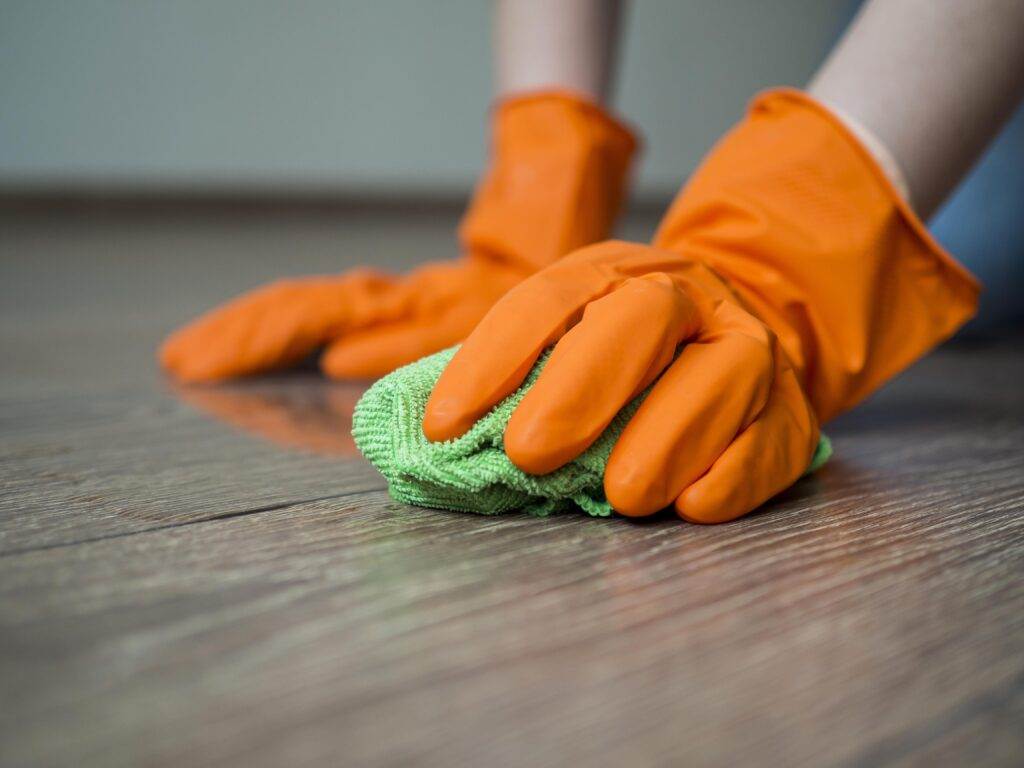
Before the carpet cleaning service provider arrives, there are a few things you can do to prepare your home for a deep carpet clean:
1. Clearing the area of furniture and objects: Remove any furniture or objects from the area that will be cleaned. This will allow the carpet cleaning technicians to have easy access to the entire carpet and ensure a thorough clean.
2. Vacuuming the carpet beforehand: It’s a good idea to vacuum the carpet before the deep clean. This will help remove any loose dirt and debris, making the deep cleaning process more effective.
3. Protecting walls and baseboards: Place plastic or aluminum foil under furniture legs and along baseboards to protect them from any moisture or cleaning solutions that may be used during the deep clean.
The importance of vacuuming before a deep carpet clean
Vacuuming before a deep carpet clean is an important step that should not be skipped. Here’s why:
1. Removing surface dirt and debris: Vacuuming before a deep carpet clean helps remove any loose dirt and debris from the surface of the carpet. This allows the deep cleaning process to focus on removing embedded dirt and stains, resulting in a more thorough clean.
2. Allowing for a more thorough clean: When there is less surface dirt and debris on the carpet, the cleaning solutions used during the deep clean can penetrate deeper into the carpet fibers. This allows for a more thorough clean, ensuring that all dirt, stains, and allergens are removed.
3. Preventing damage to the carpet cleaning equipment: Vacuuming before a deep carpet clean helps prevent damage to the cleaning equipment. Loose dirt and debris can clog the equipment and reduce its effectiveness. By removing as much surface dirt as possible, you can ensure that the cleaning equipment can work efficiently.
Tips for removing tough stains and odors from your carpet
Sometimes, regular vacuuming and deep cleaning may not be enough to remove tough stains and odors from your carpet. Here are some tips to help you tackle these stubborn issues:
1. Using natural cleaning solutions: For tough stains and odors, consider using natural cleaning solutions instead of harsh chemicals. Baking soda, vinegar, and hydrogen peroxide are all effective at removing stains and neutralizing odors. Mix these ingredients with water to create a cleaning solution and apply it to the stained area. Let it sit for a few minutes before blotting with a clean cloth.
2. Blotting instead of rubbing: When dealing with stains, it’s important to blot the area instead of rubbing it. Rubbing can push the stain deeper into the carpet fibers and make it more difficult to remove. Blotting gently with a clean cloth or paper towel helps lift the stain without spreading it.
3. Testing solutions on a small area first: Before applying any cleaning solution to your carpet, it’s always a good idea to test it on a small, inconspicuous area first. This will help ensure that the solution does not cause any damage or discoloration to your carpet.
How often should you deep clean your carpets?
The frequency of deep cleaning your carpets depends on several factors, including the amount of foot traffic in your home, whether you have pets or children, and if anyone in your household has allergies or respiratory issues. As a general guideline, it is recommended to deep clean your carpets at least once every 12-18 months.
However, if you have high foot traffic or pets that shed a lot of hair, you may need to deep clean your carpets more frequently. Similarly, if someone in your household has allergies or respiratory issues, more frequent deep cleaning may be necessary to maintain a healthy living environment.
DIY carpet cleaning vs hiring a professional
When it comes to deep carpet cleaning, you have the option to do it yourself or hire a professional. Here are some pros and cons of each option:
DIY carpet cleaning:
– Pros: DIY carpet cleaning can be more cost-effective compared to hiring a professional. You have control over the cleaning process and can choose the cleaning solutions and methods that you prefer. It can also be more convenient if you have the necessary equipment readily available.
– Cons: DIY carpet cleaning may not be as effective as professional cleaning, especially when it comes to removing deep-seated dirt and stains. It can also be time-consuming and physically demanding, especially if you have a large area to clean. Additionally, if not done properly, DIY carpet cleaning can lead to damage or discoloration of the carpet.
Hiring a professional:
– Pros: Professional carpet cleaners have the knowledge, experience, and specialized equipment to effectively deep clean your carpets. They can remove deep-seated dirt and stains that may be difficult to tackle on your own. Hiring a professional saves you time and effort, allowing you to focus on other tasks.
– Cons: Hiring a professional can be more expensive compared to DIY carpet cleaning. You may also need to schedule an appointment and coordinate with the service provider, which may not always be convenient.
When deciding whether to DIY or hire a professional, consider factors such as your budget, the condition of your carpets, and your personal preferences. If you have heavily soiled carpets or specific stains that need to be removed, it may be best to hire a professional for a thorough deep clean.
Maintaining your carpets after a deep clean
After a deep carpet clean, it’s important to maintain your carpets to keep them looking fresh and clean. Here are some tips:
1. Regular vacuuming: Regular vacuuming is essential to remove surface dirt and debris from your carpets. Aim to vacuum at least once a week, or more frequently if you have pets or high foot traffic.
2. Promptly addressing spills and stains: Accidents happen, and when they do, it’s important to address spills and stains promptly. Blot the area with a clean cloth or paper towel to absorb as much of the liquid as possible. Then, use a mild cleaning solution to treat the stain, following the manufacturer’s instructions.
3. Professional cleaning as needed: Even with regular maintenance, carpets will eventually need another deep clean. Pay attention to the condition of your carpets and schedule a professional cleaning as needed. This will help prolong the life of your carpets and maintain a clean living space.

Enjoying a fresh and clean living space with a deep carpet clean
In conclusion, a deep carpet clean is essential for maintaining a clean and healthy living space. Carpets can harbor dirt, dust, allergens, and bacteria, which can have a negative impact on our health. A deep carpet clean helps improve indoor air quality, reduce allergens and bacteria, prevent mold growth, and eliminate odors.
Understanding the different types of carpet cleaning methods can help you choose the right one for your needs. When choosing a carpet cleaning service provider, it’s important to do your research, check for certifications and insurance, and read reviews and testimonials.
Before a deep carpet clean, prepare your home by clearing the area of furniture and objects, vacuuming the carpet beforehand, and protecting walls and baseboards. Vacuuming before a deep carpet clean is important to remove surface dirt and debris and allow for a more thorough clean.
For tough stains and odors, consider using natural cleaning solutions and blotting instead of rubbing. The frequency of deep cleaning your carpets depends on several factors, but as a general guideline, it is recommended to deep clean your carpets at least once every 12-18 months.
You have the option to DIY carpet cleaning or hire a professional. Consider factors such as your budget, the condition of your carpets, and your personal preferences when making this decision. After a deep clean, maintain your carpets by regular vacuuming, promptly addressing spills and stains, and scheduling professional cleaning as needed.
By prioritizing carpet maintenance and enjoying a fresh and clean living space, you can create a healthier environment for you and your family.



